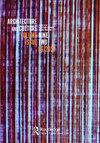被压抑的主体性在中国的回归:冯纪中、王澍
IF 1.8
0 ARCHITECTURE
引用次数: 2
摘要
在中国建筑领域,主体性先是被毛时代的政治意识形态所压抑,后来又被市场条件下的商品化所压抑。本文通过对冯纪中的“方塔园”和王澍的“象山校园”两个建筑项目的分析,来考察主体性是如何被压抑和回归的。它借鉴了两种互补的主体性研究方法:莫里斯·梅洛-庞蒂对身体经验的强调和米歇尔·福柯对权力的分析。虽然花园对个人创造力的意识形态和政治压制提出了微妙的批评,但香山校园抗议当代建筑生产中工具理性的霸权。通过使用生产力来表达感官体验,两位建筑师努力打造一种抗拒的主体性,挑战当前的思想和身体、主体和客体、情感和理性、建筑和生活世界的分离趋势。本文章由计算机程序翻译,如有差异,请以英文原文为准。
The Return of Repressed Subjectivity in China: Feng Jizhong and Wang Shu
Abstract In the Chinese architectural field, subjectivity has been repressed first by political ideology in the Mao era and later by commodification under market conditions. By analyzing two architectural projects – Feng Jizhong’s Garden of the Square Pagoda and Wang Shu’s Xiangshan Campus, this paper examines how subjectivity has been repressed and returned. It draws on two complementary approaches toward subjectivity: Maurice Merleau-Ponty’s emphasis on bodily experience and Michel Foucault’s analysis of power. Whereas the garden presented a subtle critique of the ideological and political repression of individual creativity, Xiangshan Campus protested the hegemony of instrumental reason in contemporary architectural production. By using productive power to articulate sensuous experience, the two architects endeavored to forge a resistant subjectivity, that challenges current tendencies to disarticulate mind and body, subjects and objects, emotion and rationality, architecture and lifeworld.
求助全文
通过发布文献求助,成功后即可免费获取论文全文。
去求助
来源期刊

Architecture and Culture
ARCHITECTURE-
CiteScore
0.80
自引率
0.00%
发文量
25
期刊介绍:
Architecture and Culture, the international award winning, peer-reviewed journal of the Architectural Humanities Research Association, investigates the relationship between architecture and the culture that shapes and is shaped by it. Whether culture is understood extensively, as shared experience of everyday life, or in terms of the rules and habits of different disciplinary practices, Architecture and Culture asks how architecture participates in and engages with it – and how both culture and architecture might be reciprocally transformed. Architecture and Culture publishes exploratory research that is purposively imaginative, rigorously speculative, visually and verbally stimulating. From architects, artists and urban designers, film-makers, animators and poets, from historians of culture and architecture, from geographers, anthropologists and other social scientists, from thinkers and writers of all kinds, established and new, it solicits essays, critical reviews, interviews, fictional narratives in both images and words, art and building projects, and design hypotheses. Architecture and Culture aims to promote a conversation between all those who are curious about what architecture might be and what it can do.
 求助内容:
求助内容: 应助结果提醒方式:
应助结果提醒方式:


